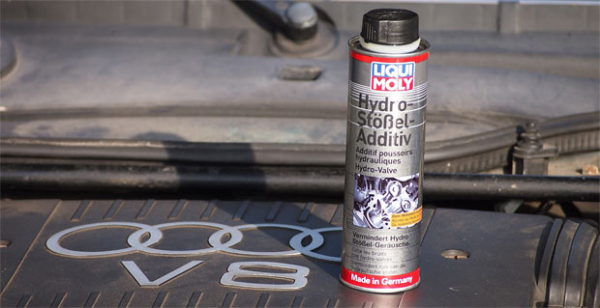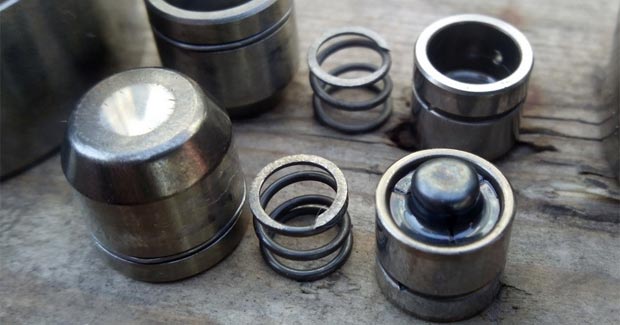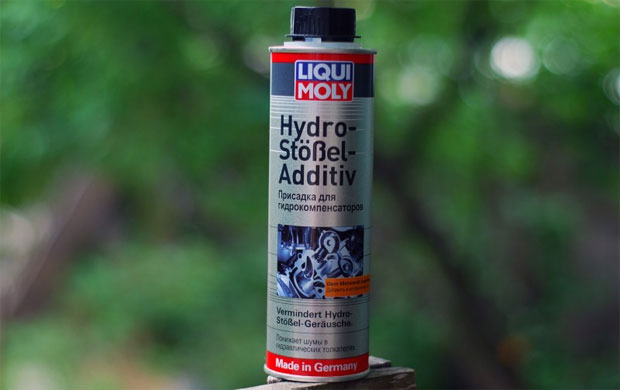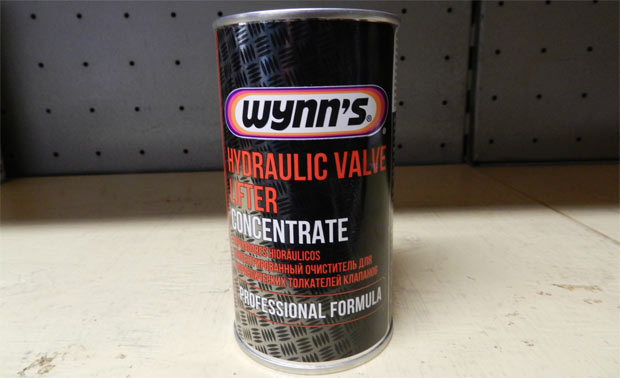
Stop noise hydraulic lifters liqui moly. We clean without disassembling
Content
The principle of operation and the causes of the knock of hydraulic lifters
The hydraulic compensator is used to automatically adjust the gap between the camshaft cam and the valve stem (pusher). The principle of operation of this device is quite simple.
The hydraulic compensator conditionally consists of two cylindrical parts, which are some kind of plunger pair. That is, one part enters the second and creates a sealed cavity inside the body of the compensator. In the inner cavity there is a system of channels and a ball valve. These channels and the valve serve to accumulate and hold engine oil in the internal volume of the hydraulic compensator.


The outer part of the compensator fits into a precisely fitted cavity in the cylinder head and contacts the camshaft cam with its upper part. In the cavity of the cylinder head there is a channel for supplying oil from the central line of the engine. The inner (lower) part of the compensator rests against the valve stem. Oil fills the internal cavity of the hydraulic compensator and pushes its parts as far as possible to create a direct connection between the camshaft cam and the valve stem head (eliminates clearance). This allows the gas distribution mechanism to accurately perform its functions and open the combustion chamber strictly to the value determined by the automaker and for the strictly allotted time, regardless of the degree of timing wear and engine temperature.
When the hydraulic compensator fails, gaps appear between three parts: the valve stem, camshaft cam and hydraulic compensator. The impact cam acts on the timing parts. This is what causes the knock.
In the vast majority of cases, in the early stages of a problem with hydraulic lifters, the cause is clogging of the oil channels. If these channels are not cleaned in time, the compensators will completely fail (they will simply break or wear out with shock loads without lubrication). And this will lead not only to engine failures, but also to accelerate the moment of failure of the entire timing.


How does hydraulic lifter stop noise work?
Liqui Moly recently introduced a new product in its line of auto chemicals: stop noise hydraulic lifters. According to the manufacturer, this composition has the following properties:
- Gently cleans narrow channels of hydraulic lifters that are clogged with sludge and clots of used oil. The sludge leaves the channels gradually, does not exfoliate in pieces and does not create a risk of creating plugs at other points in the engine oil line.
- Increases the viscosity of the oil, which has a positive effect on the restoration of the hydraulic lifters. An improvement in the high-temperature viscosity index generally has a good effect on the protection of ICE rubbing parts.
Stop noise additive for hydraulic compensators can be added at any time, regardless of engine mileage. On average, a positive effect is observed after 100–200 km of run. After changing the oil, the effect is preserved, that is, it is not necessary to constantly fill in the additive. The composition is available in containers of 300 ml. The commercial name is Hydro Stossel Additive. One bottle is enough to fill the engine with an oil volume of up to 6 liters.


Reviews of motorists
Reviews about Liqui Moly Hydro Stossel Additive from motorists who have tried this composition are mostly positive. Most often, car owners note the following points:
- hydraulic lifters really start to make less noise almost immediately after using the composition, and in many cases the knock disappears completely after the first hundred kilometers;
- the engine as a whole runs quieter after filling with Hydro Stossel Additive;
- the effect persists for a long time, that is, the manufacturer does not try to bind the car owner to his product;
- if the additive is used even once, the engine is noticeably cleaned (at least under the valve cover, the amount of sludge deposits is reduced).
Some drivers talk about the complete uselessness of the composition. But here, most likely, the critical wear of hydraulic lifters affects. The additive only cleans the oil channels, but does not restore mechanical damage. Therefore, it is advisable to use it immediately after the appearance of the knock of hydraulic lifters.


Watch this video on YouTube
